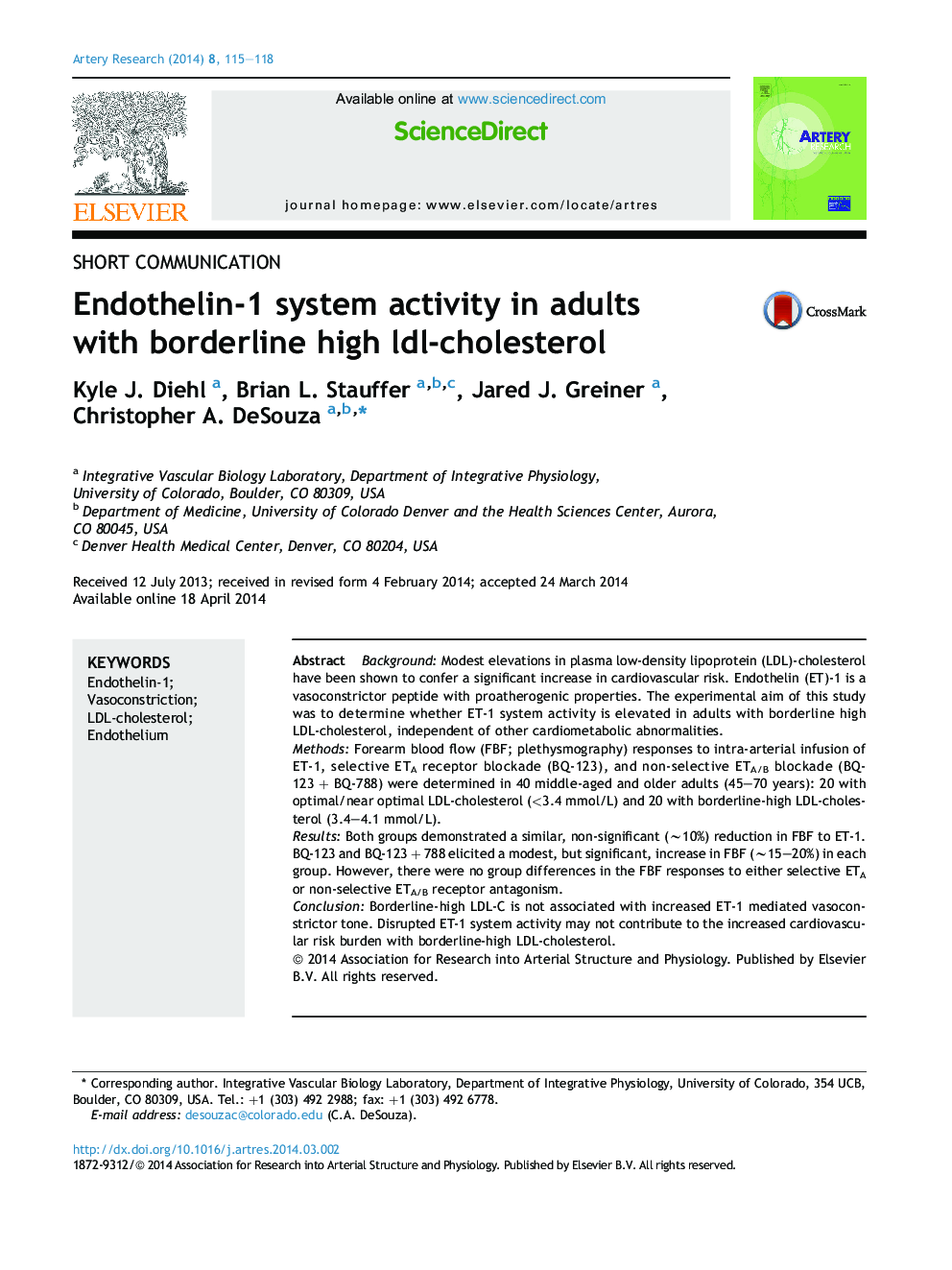| Article ID | Journal | Published Year | Pages | File Type |
|---|---|---|---|---|
| 5942466 | Artery Research | 2014 | 4 Pages |
BackgroundModest elevations in plasma low-density lipoprotein (LDL)-cholesterol have been shown to confer a significant increase in cardiovascular risk. Endothelin (ET)-1 is a vasoconstrictor peptide with proatherogenic properties. The experimental aim of this study was to determine whether ET-1 system activity is elevated in adults with borderline high LDL-cholesterol, independent of other cardiometabolic abnormalities.MethodsForearm blood flow (FBF; plethysmography) responses to intra-arterial infusion of ET-1, selective ETA receptor blockade (BQ-123), and non-selective ETA/B blockade (BQ-123Â +Â BQ-788) were determined in 40 middle-aged and older adults (45-70 years): 20 with optimal/near optimal LDL-cholesterol (<3.4Â mmol/L) and 20 with borderline-high LDL-cholesterol (3.4-4.1Â mmol/L).ResultsBoth groups demonstrated a similar, non-significant (â¼10%) reduction in FBF to ET-1. BQ-123 and BQ-123Â +Â 788 elicited a modest, but significant, increase in FBF (â¼15-20%) in each group. However, there were no group differences in the FBF responses to either selective ETA or non-selective ETA/B receptor antagonism.ConclusionBorderline-high LDL-C is not associated with increased ET-1 mediated vasoconstrictor tone. Disrupted ET-1 system activity may not contribute to the increased cardiovascular risk burden with borderline-high LDL-cholesterol.
